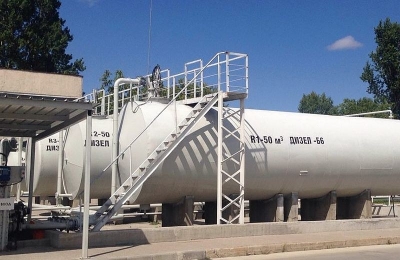New law is about to introduce heavy requirements for the fuel trade and consumption


A project called the Law on Administrative Regulation of Economic Activities Related to Oil and Petroleum Products has been submitted to the National Assembly. It provides for the creation of a register for the Economic Ministry of companies that trade, store, or transport fuel. In order to be registered, they will have to meet high statutory capital requirements and provide bank guarantees, and their managers will have to meet education and employment minimal requirements.
The law introduces definitions of the types of activities and sites, such as a gas station and an internal site - one from which fuel is used only for own consumption. The internal stations, such as departmental gas stations, will have to meet all requirements for a gas station and their users must meet the requirements of retailers, including minimum capital and collateral. In addition, it is explicitly forbidden to sell fuel by refueling a vehicle other than a gas station.
Penalties for traders and consumers in non-compliance with the provisions of the law are heavy, including the seizure of vehicles, irrespective of their ownership.
The project's importers are a group of MPs from practically all parliamentary groups. In their reasoning, they argue with the need to deal with the gray sector, which occupies a significant part of the market according to the competent authorities. They also highlighted the inability of current laws to curb multiple abuses.
The question remains whether the abuses found in fuel sales are due to legal omissions or due to lack of control over their compliance and enforcement by the institutions. Adding a new law to many other regulating and burdening laws to the sector, will hardly contribute to reducing the gray sector if the institutions that monitor its implementation are powerless and inactive.
The sure effect of making this project a law will be the aggravation for the conscious market participants. Larger traders will meet the requirements more easily, while for the smaller ones the cost increase will be significant and even impossible. This will restrict competition, and in all likelihood will make some traders and consumers move into the gray sector in an attempt to survive. Increased costs will undoubtedly also be reflected in fuel prices paid by the end-user.
